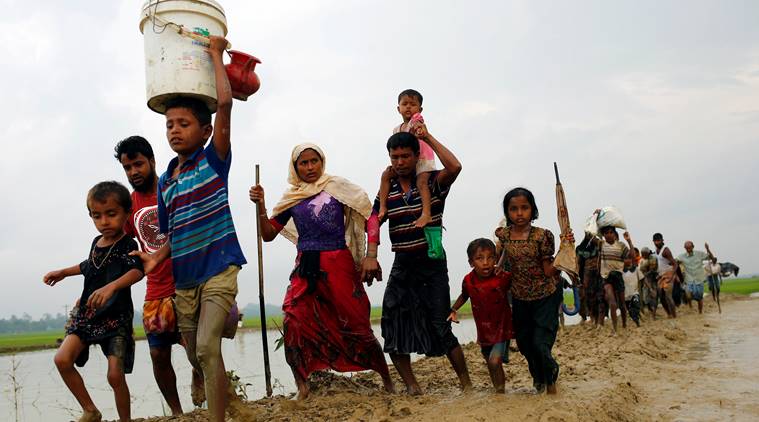By Reuters |Thailand |Published: January 14, 2019 10:45:44 am
Too scared to return home, Myanmar refugees in Thai camps face an uncertain future
Refugees in Thailand have three options: repatriation to their country of origin, local integration or resettlement in a third country.

When her first child – a daughter – was born, Pa Pa Win dreamed of a grand wedding for her many years down the line, with a big celebration in their village in Myanmar’s Mon state.
Instead, when the time came 20 years later, Pa Pa Win and her family settled for a modest gathering in the Mae La refugee camp in northern Thailand.
They are among about 31,000 refugees in Mae La, the largest of nine camps on the Thai-Myanmar border. She and her family have been there for 13 years.
“We came here because we were not safe in Myanmar. We thought we could go back after a while, or that we could make a life here in Thailand,” said Pa Pa Win, who is Muslim.
57s

'Kill us here instead': Rohingya refugees fear repatriation
As a controversial drive to repatriate Rohingya Muslims closes in, refugees in a Bangladeshi camps express their fear of being forced back to Myanmar, where the UN says conditions are still not conducive to their return.
“But it is not safe for us to go back, and we do not know what is to become of us here.”
There are 97,439 refugees from Myanmar in the camps – half of them children – according to the U.N. refugee agency UNHCR.
There are 97,439 refugees from Myanmar in the camps – half of them children – according to the U.N. refugee agency UNHCR.
Most are ethnic minorities who fled fighting between the military and ethnic armed groups. Some have lived in the camps for more than 30 years – one of the world’s most protracted refugee situations.










































No hay comentarios:
Publicar un comentario